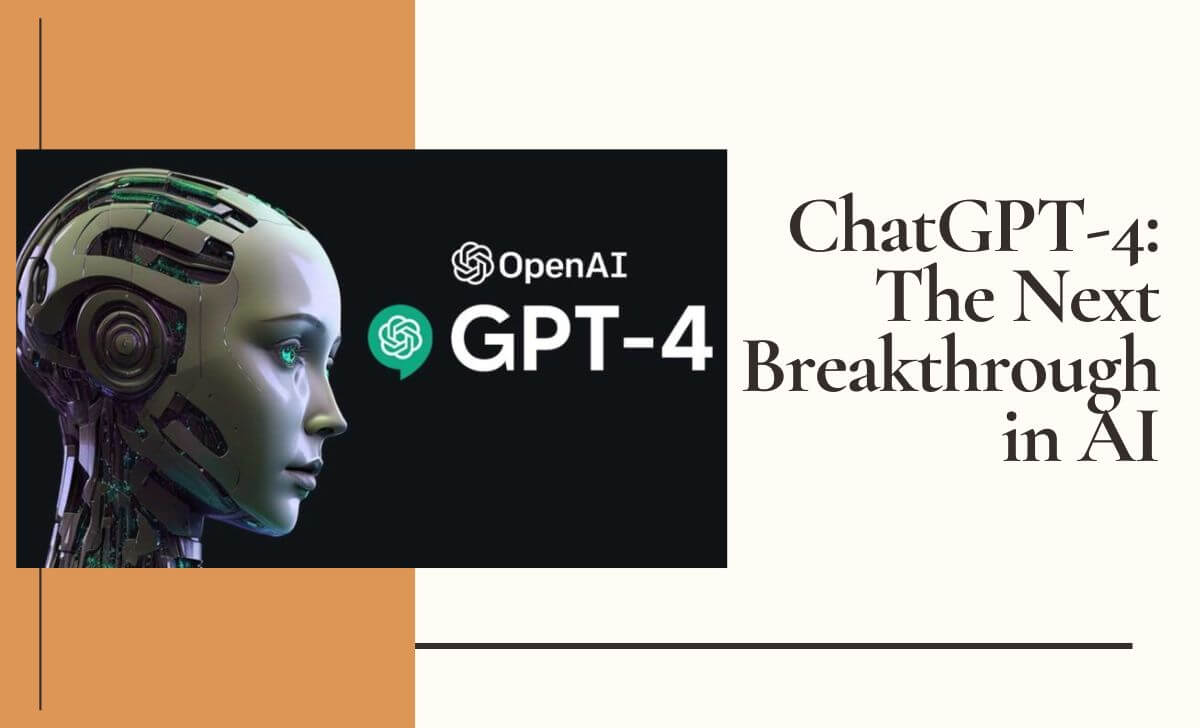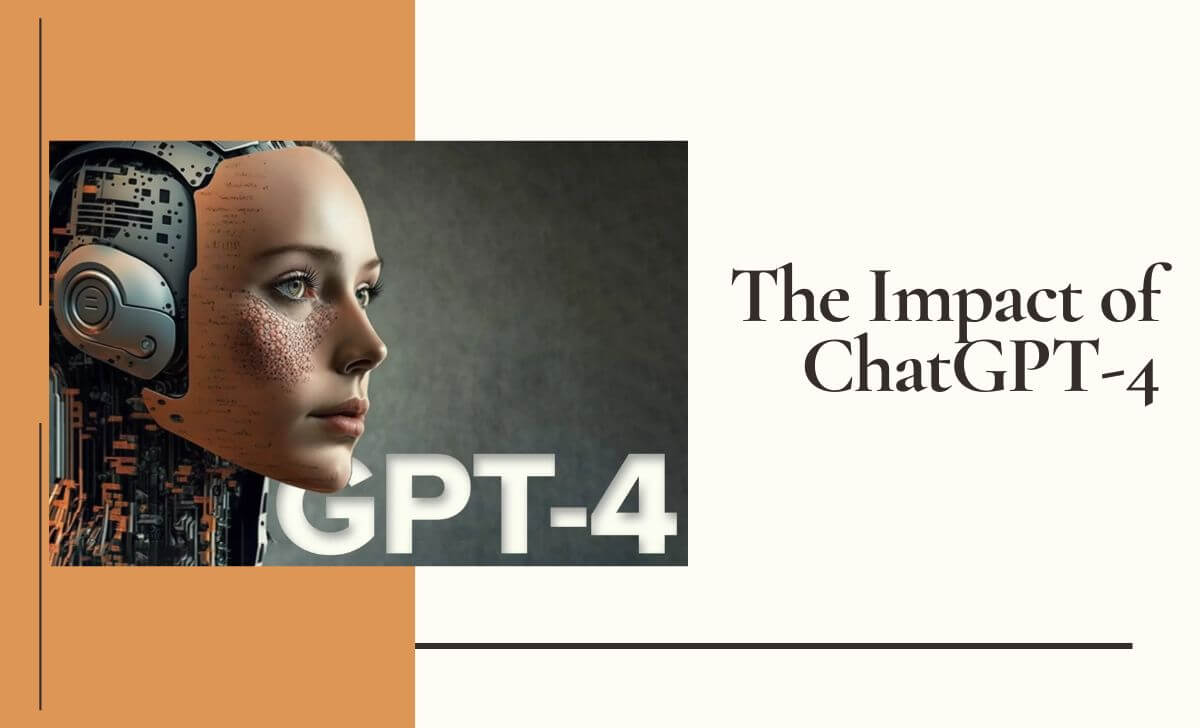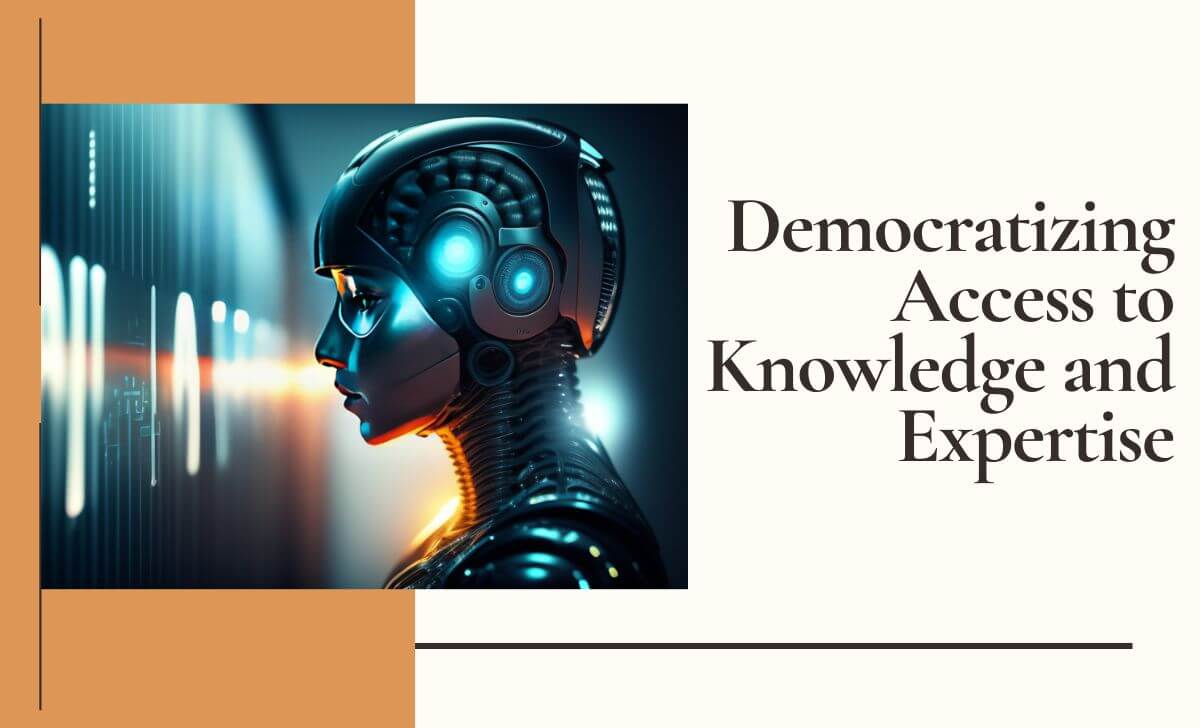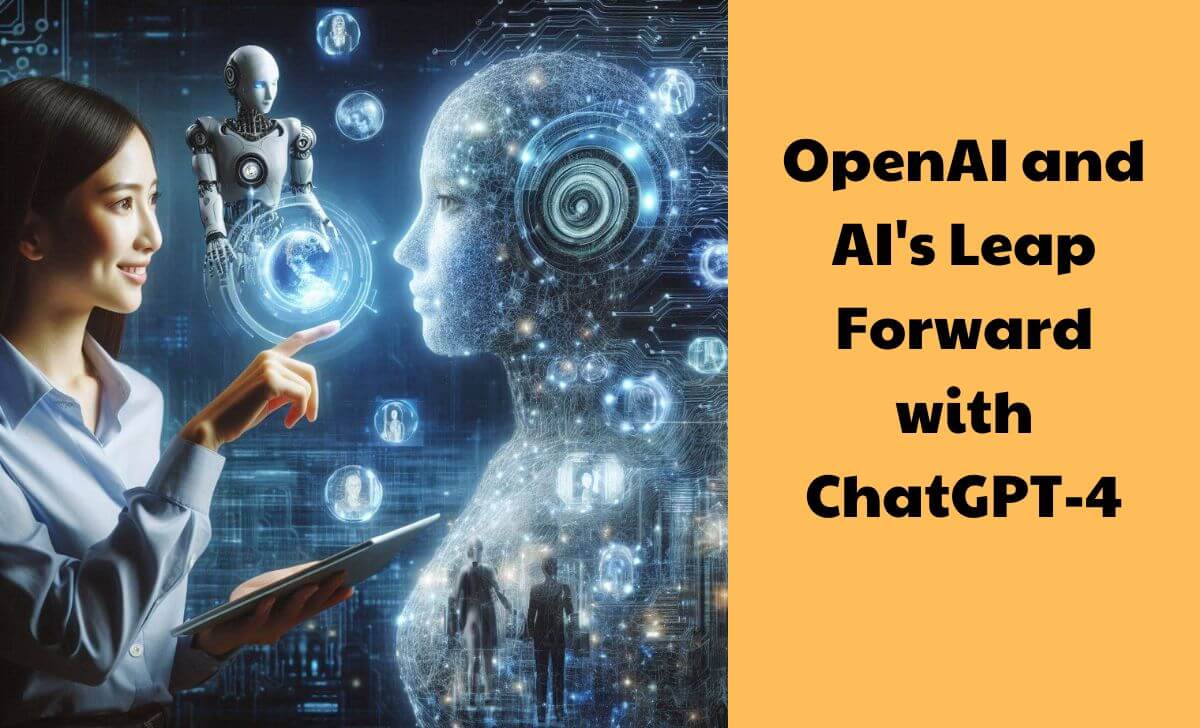OpenAI, a pioneering artificial intelligence research company, has been at the forefront of the AI revolution, continuously pushing the boundaries of what is possible in the realm of machine learning and natural language processing.
In this comprehensive blog post, we will delve into the history and impact of OpenAI, explore the groundbreaking advancements of their latest language model, ChatGPT-4, and examine the far-reaching implications of this technological leap forward.
OpenAI: Pioneers in AI

Introduction to Artificial Intelligence (AI)
Artificial Intelligence (AI) has captured the world's imagination, promising a future where machines can replicate and even surpass human intelligence in a wide range of tasks.
From natural language processing to computer vision, AI has the potential to transform industries, revolutionize problem-solving, and enhance our daily lives. As the field of AI continues to evolve, organizations like OpenAI have emerged as the vanguard, driving innovation and pushing the boundaries of what is possible.
Introduction to OpenAI
OpenAI, founded in 2015, is a prominent AI research company that has been at the forefront of the AI revolution. Backed by some of the most influential figures in the tech industry, including Elon Musk and Sam Altman, OpenAI's mission is to ensure that artificial intelligence has a positive impact on humanity.
Through their cutting-edge research and development, the company has made significant strides in areas such as natural language processing, computer vision, and generative AI.
About Mira Murati - OpenAI CTO
CTO OpenAI, Mira Murati, a leading artificial intelligence research organization. In her role as CTO, she oversees the development and implementation of cutting-edge AI technologies, ensuring that they align with ethical standards and serve beneficial purposes for society.
Murati's background includes extensive experience in engineering and technology management, allowing her to effectively lead teams working on innovative projects and advancements in AI. Her leadership is crucial in navigating the complex challenges associated with AI development, including safety, scalability, and alignment with human values.
As a prominent figure in the tech industry, Murati often speaks about the importance of responsible AI deployment, advocating transparency and collaboration among researchers and organizations to address the potential risks and benefits of AI systems. Through her work, she contributes to shaping the future of AI, making it more accessible and beneficial for everyone.
ChatGPT-4: The Next Breakthrough in AI

Advancements in Language Models
ChatGPT-4, the latest iteration of OpenAI's language model, represents a significant leap forward in the field of natural language processing.
Building upon the success of its predecessor, ChatGPT-3, the new model boasts enhanced capabilities in areas such as language understanding, contextual awareness, and the generation of coherent, human-like responses. With its increased depth of knowledge and improved reasoning abilities, ChatGPT-4 has the potential to revolutionize how we interact with and leverage AI-powered language tools.
Expanded Capabilities
One of the standout features of ChatGPT-4 is its expanded capabilities compared to previous language models. The new model is adept at handling a wide range of tasks, from complex problem-solving and task completion to creative writing and open-ended conversation.
ChatGPT-4 can engage in detailed analysis, provide nuanced insights, and even tackle multi-step problems, showcasing its ability to understand and reason about the world in a more sophisticated manner.
Increased Contextual Awareness
A key advancement in ChatGPT-4 is its enhanced contextual awareness, which allows the model to better understand the broader context of a conversation or task. By incorporating a deeper understanding of the user's intent, the model can provide more relevant and tailored responses, making the interaction feel more natural and intuitive. This improved contextual awareness is a significant step forward in the development of AI systems that can truly engage in meaningful and contextual dialogue.
Versatility and Adaptability
Another notable aspect of ChatGPT-4 is its versatility and adaptability. The model is capable of handling a diverse range of inputs, from natural language to structured data, and can seamlessly switch between different task domains. This versatility enables ChatGPT-4 to be deployed across a wide array of applications, from customer service chatbots to scientific research assistants, further expanding the potential impact of this groundbreaking technology.
The Impact of ChatGPT-4

Transforming Industries
The introduction of ChatGPT-4 has the potential to transform a wide range of industries, from education and healthcare to finance and media. By automating various tasks, such as content generation, research assistance, and problem-solving, the model can significantly improve efficiency, productivity, and decision-making processes. This could lead to cost savings, increased productivity, and the liberation of human resources to focus on higher-level strategic and creative tasks.
Enhancing Productivity and Efficiency
One of the most immediate impacts of ChatGPT-4 is its ability to enhance productivity and efficiency across a multitude of domains. The model's capacity to rapidly generate high-quality text, analyze complex data, and provide personalized insights can significantly streamline workflows and reduce the time and effort required to complete various tasks. This productivity boost can have far-reaching implications, from accelerating research and development to improving customer service and content creation.
Democratizing Access to Knowledge and Expertise

ChatGPT-4's accessibility and versatility also have the potential to democratize access to knowledge and expertise. By making advanced language processing capabilities available to a wide range of users, the model can empower individuals and organizations to tap into vast reservoirs of information and insights, regardless of their technical expertise or access to specialized resources. This democratization of knowledge can foster innovation, encourage lifelong learning, and provide opportunities for those who may have traditionally been excluded from certain domains.
Ethical Considerations and Responsible Development
As with any transformative technology, the development and deployment of ChatGPT-4 raise important ethical considerations. Issues such as data privacy, algorithmic bias, and the potential for misuse or malicious applications must be carefully addressed. OpenAI has emphasized the importance of responsible AI development, and the company's commitment to ethics and transparency will be crucial in ensuring the safe and beneficial integration of ChatGPT-4 into various sectors.
Conclusion
By harnessing the power of AI responsibly and with a steadfast commitment to positive impact, we can unlock a future where humans and machines work in tandem, unlocking new realms of creativity, innovation, and problem-solving. The future that ChatGPT-4 heralds is one of the great promises, and it is up to us, as a global community, to ensure that this promise is realized in a way that benefits all of humanity.

